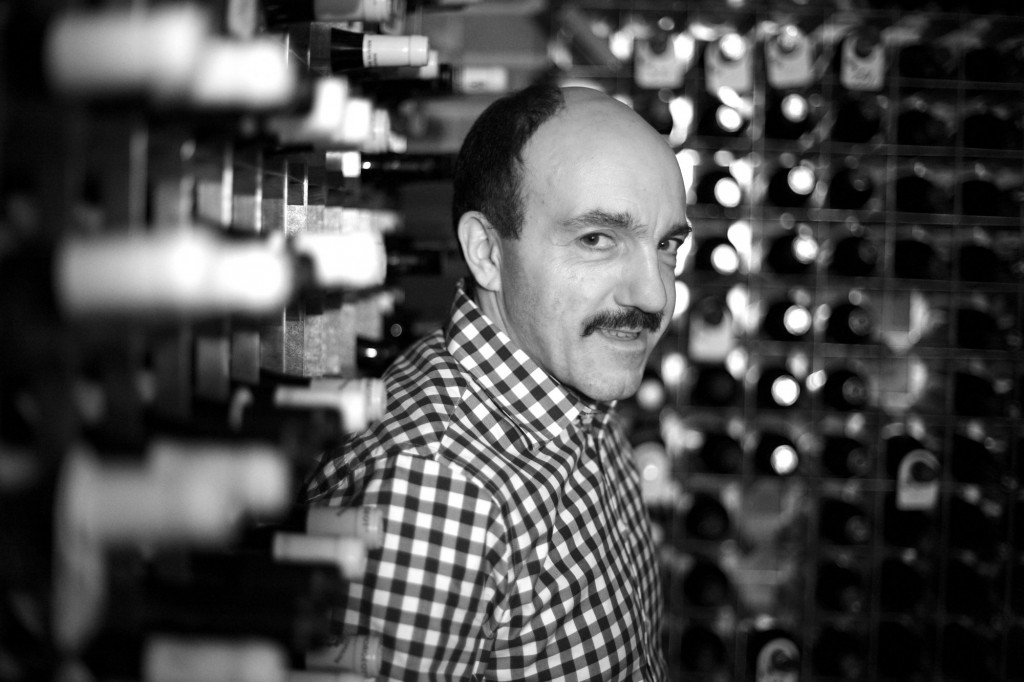
THE FRENCH
FOOD
INDUSTRY'S PORTAL
Webzine
taste it to info

Interview with Gérard Basset, World’s Best Sommelier 2010, based in the UK
News /
Tuesday 4 March 2014
Tell us about your career…
I started with a CAP (equivalent to an NVQ) in cooking and waiting. Then, to have a fully rounded education, I said to myself that it would be a good idea to obtain a sommelier qualification. So I took the exam as an external candidate and passed.
So chance played a part?
Absolutely! For me, the job of sommelier is a bit like the UK, where I have lived for almost 30 years – I arrived by chance when I was young and have never left!
In the end, success came easily when I was starting out in the profession, which encouraged me to continue. I said to myself, “Wine is my path, so I am going to follow it as far as it goes and reach the summit. ” I then launched myself into the business of hotels specialising in wine and I am still entering competitions today.
Including the World’s Best Sommelier, which you won in 2010…
Yes! After many years trying! I was ranked second in the competition several times. But I persevered! But it did take a lot of time and effort. The tests are difficult: blind tastings, knowledge test, service, complementary wines, etc. You need to be a walking encyclopaedia on wines, beers and spirits from all around the world! A lot of training and tastings are also necessary to be able to recognise wine at random. It’s a sport! And I had professional coaches for months and months. Luckily my wife was there to support me throughout.
Is sommelier a typically French profession?
The job of sommelier is certainly linked to France. It is a sector which took off in France in the 1960s with the appearance of Michelin-starred gastronomic landmarks, particularly Bocuse and Troisgros. But other countries have caught up. There are now good restaurants everywhere and many sommeliers today work in Japan and the United States. Unfortunately, that international dimension has not yet been fully incorporated into sommelier training in France. French courses are 90% based on French wines, even though a Japanese sommelier studies wines from all around the world. But things are changing.
How would you sum up the art of living and French gastronomy in three words?
Elegance. Intensity of taste. Sophistication? There is always something ceremonial about French meals – the presentation, the crockery, the service… The word “meticulous” is perhaps most appropriate.
What are UK consumers’ expectations of French wines?
The British have a strong wine culture. They are always asking for explanations and want to learn: about the grape varieties, about complementary wines and food. They are starting to really understand it. Thirty years ago, it must be said, French wines largely dominated the UK market. The British particularly like Bordeaux and wines from the South West generally.
On the whole, I notice that clients who spend a lot of money in the restaurant will, nine times out of 10, choose a French wine: “grands crus” from Bordeaux and Champagne. That is a sign of French “excellence”. And excellence which comes at a price – there are not many €400 or €500 bottles anywhere other than France!
What do you consider to be France’s strengths?
There is diversity in France, which doesn’t exist anywhere else. The wine industry is very fragmented. There are not many large companies, not like the giants found in other countries. Most are small producers and that is a real advantage. We have a level of expertise and a culture focused on local produce.
What do you think of the range of French wines available?
It has changed a lot. Previously, we just followed tradition without really taking any risks. But for a few years now, the big French wine producers have stepped up their work in the vineyards. The grape is more refined, more mature. That produces more interesting wines! In regions such as Languedoc-Roussillon and Provence, you can now find really good wines, instead of just tourist wines.
So the range has improved?
We definitely now drink better wines than ever! But the picture is not entirely rosy either. French wines have also lost a lot of market segments with the vast increase in foreign wines available. You also need to bear in mind that French appellations are complicated, even for the French! Fortunately, thanks to the work of certain organisations such as Sopexa, regions have been able to develop abroad. French wines are doing very well in Asia for example.
How can the influence of French culture and gastronomy be promoted?
Quite simply by talking about it. When you want to encourage somebody to like something, you mustn’t impose it. For many years, we tried to impose our “excellence” to some extent, which not everyone appreciated. We need to recognise that great wines are everywhere. It would be boring if there were only French wines! But when we believe in our products, we can compare them without being defensive, talk about them without disparaging foreign labels.
What is your expert advice on the best wine to drink this Christmas?
A natural sweet wine such as Rivesaltes Ambré, accompanied by a Christmas pudding, served hot with vanilla ice cream… Christmas pudding is not really French, but it is worth trading in the traditional chocolate log for!





